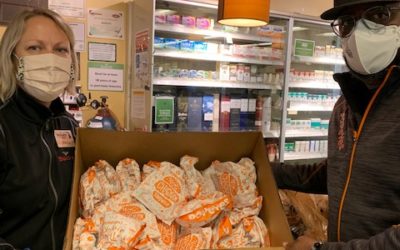With such a mass of alerts, emails, and resources becoming available in response to the COVID crisis, cyber criminals have already found ways to exploit this crisis and harvest critical personal data. From applications utilizing spyware to track personal user data to elaborate phishing schemes promising 24-hour medical test kits, users are vulnerable. We’ve gotten to the point that Microsoft is working to update security for their operating systems to fight COVID cyber-threats.
Even the credit card industry has felt the ripple effect of cyber-crime amid the COVID crisis. Last week in Norway, Norwegian Cruise Line and a handful of travel agencies fell victim to a breach of nearly 30,000 records. This breach came from access to a partner portal containing sensitive partner information. As these scams are only continuing to evolve, industries of all kinds need to ensure that they’re staying secure.
Some other examples include (provided by the United States Secret Service)…
- Treatment scams: Scammers are offering to sell fake cures, vaccines, and advice on unproven treatments for COVID-19.
- Supply scams: Scammers are creating fake shops, websites, social media accounts, and email addresses claiming to sell medical supplies currently in high demand, such as surgical masks. When consumers attempt to purchase supplies through these channels, fraudsters pocket the money and never provide the promised supplies.
- Provider scams: Scammers are also contacting people by phone and email, pretending to be doctors and hospitals that have treated a friend or relative for COVID-19, and demanding payment for that treatment.
- Charity scams: Scammers are soliciting donations for individuals, groups, and areas affected by COVID-19.
- Phishing scams: Scammers posing as national and global health authorities, including the World Health Organization (WHO) and the Centers for Disease Control and Prevention (CDC), are sending phishing emails designed to trick recipients into downloading malware or providing personal identifying and financial information.
- App scams: Scammers are also creating and manipulating mobile apps designed to track the spread of COVID-19 to insert malware that will compromise users’ devices and personal information.
- Investment scams: Scammers are offering online promotions on various platforms, including social media, claiming that the products or services of publicly traded companies can prevent, detect, or cure COVID-19, and that the stock of these companies will dramatically increase in value as a result. These promotions are often styled as “research reports,” make predictions of a specific “target price,” and relate to microcap stocks, or low-priced stocks issued by the smallest of companies with limited publicly available information.
NuArx is doing all we can to ensure that credit card transactions stay secure, and that our customers stay up and running. In this vulnerable time, we want to ensure that our customers and their families stay safe. We appreciate those in the food and service industries working their hardest to keep people fed and safe. Together we can make a difference.


